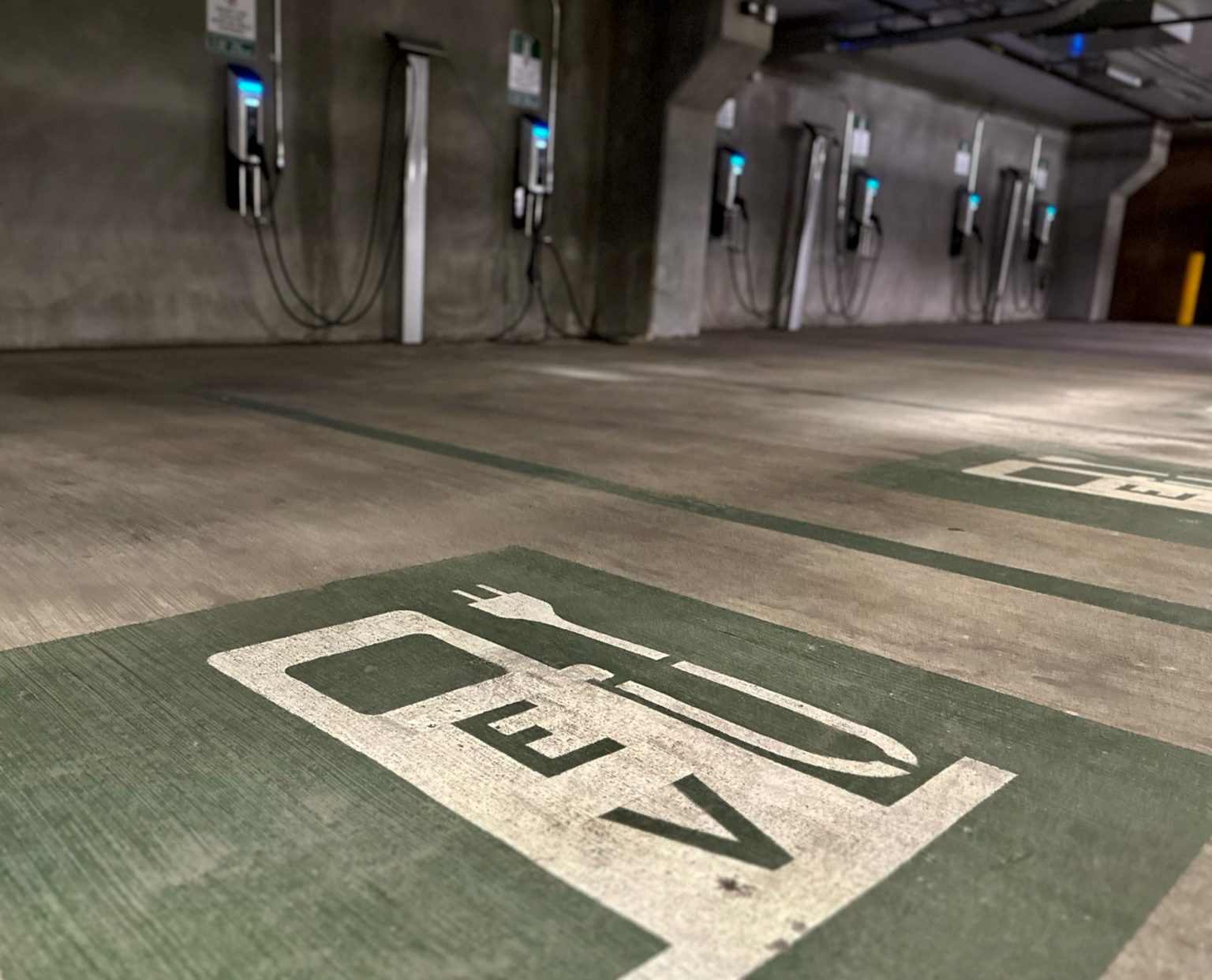Summarize this content to 2000 words in 6 paragraphs
The deployment of electric vehicle charging infrastructure is one of the areas funded by the Climate Commitment Act. (GeekWire Photo / Kurt Schlosser)
Washington Gov. Jay Inslee on Monday is highlighting a statewide program that will provide $200 energy credits to help low-income residents pay their electricity bills.
The $150 million program is funded by the Climate Commitment Act, whose fate will be decided by Washington voters this November. The Initiative 2117 ballot measure would eliminate the act, which created a marketplace where oil refineries, utilities and most of the state’s largest greenhouse gas emitters bid on carbon pollution permits that decrease in number over time.
The act has generated more than $2 billion from the state’s largest carbon emitters. The funding is paying for programs that support the transition to clean energy and has provided a boost to Washington’s climate tech sector.
Supporters of I-2117 say the Climate Commitment Act has driven up gas prices and raised electricity costs. Opponents say the measure is not entirely to blame for higher prices.
The original legislation from 2021 that created the act included plans for energy credits for utility customers.
The event on Monday will include officials from Seattle City Light to explain the program for city residents, as well as representatives from Seattle Housing Authority and the Housing Development Consortium.
RELATED: Initiative to axe carbon emissions law could ‘slam the brakes’ on Washington’s climate tech sector
Residents across the state have until Sept. 15 to apply for the one-time credits. The credits are available to single-resident households earning up to $77,700, and four-resident households earning up to $110,950.
A recent poll of 708 likely voters revealed significant support for scuttling the climate program. The poll found that 48% of respondents were certain to vote yes on I-2117, while 34% were certain to vote no, and 18% were undecided, according to The Seattle Times.
I-2117 and the Let’s Go Washington campaign has been largely backed by Brian Heywood, a resident of Redmond, Wash., and a hedge fund manager who paid for the signature-gathering effort that got the initiative on the ballot. The campaign against I-2117 includes Amazon, Microsoft, bp America, REI, unions, tribal organizations, numerous climate tech companies, and others.


